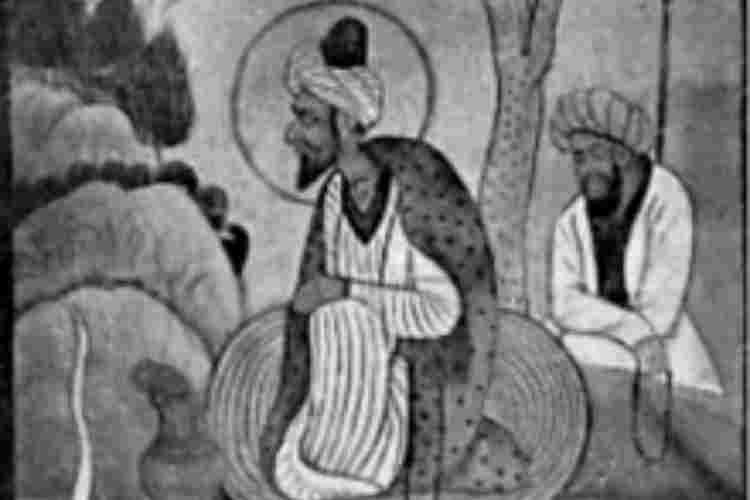
Amir Suhail Wani
Sheikh Ul Aalam Sheikh Noor Ud Din Wali is the patron saint and poet par excellence of medieval Kashmir. His teachings continue to illuminate the hearts and minds of people and impact our cultural and literary traditions. Rarely does a poem become a proverb, but in the case of Sheikh Ul Aalam, Kashmiris, irrespective of their academic and literary background continue to memorize, and recite his poetry.
He was born 700 years ago, but his message is still fresh and relevant. Through his poetry, he seems to be addressing our mundane issues and illuminating the road of our spiritual odyssey. Today, when a common Kashmiri searches for his religious and cultural roots, he has to take Sheikh Ul Aalam as the point of reference.
Sheikh ul Alam’s biggest contribution is that he contextualized Islamic teachings against the cultural ethos of Kashmir. Like all Muslim mystics, he too sought to eliminate the alienation between native traditions and a new religion. By making people understand religion in local terms Sheikh Ul Aalam etched the essence of religion into the hearts and minds of people. One is amazed to see how he extracted the nectar of the Quran, Ahadith, and Islamic wisdom into his poetry.
Lall’e Vakh (The Vakhs of Lalleshwari) and Sheikh Shruki (The sayings of Sheikh Ul Aalam) are emblematic of our socio-cultural identity and form the warp and woof of the fabric of our existence. The rich oral tradition has shaped our collective consciousness.
Sheikh is not an ordinary poet; he is rather the poet of life, social, psychological, and spiritual vexations of changing times. His insights into human life are neither superficial nor abstract; these are firmly rooted in reality and with the wisdom and insight of a sage. These inspire us to face worldly tribulations in high spirits and look for light even in the darkest recesses of life. While these days we have “self-help” books and there are “life-coaches”, - who more than often are not so successful in their lives - it is unfortunate to forget somebody like Sheikh.

Painting of Sheikh Noorudin Noorani from an a 17th century manuscript
Sheikh and his poetry arbitrate our socio-religious realm and he, in the long history of our cultural evolution, stands tall as the master definer and the grand designer of our religious sensitivities, cultural aspirations, and social propensities. Society or culture is indeed neither the creation of a single individual nor sustained by one person, but the rationalization of social mores, preservation of culture, and awakening of people to their socio-cultural milieu is often the task of individuals like poets and artists. It is thus no wonder that the English world immediately reminds us of Shakespeare, the Persian world of Rumi and Sa’adi, and the world of Urdu flashes images of Iqbal and Ghalib. Inevitably, any attempts at our cultural rediscovery, social reconstruction, and historical recollection have to recount Sheikh. In this era of identities, the understanding of Kashmiri identity is not possible without a proper understanding of the Sheikh.
There are many local reasons for the revival of Sheikh and his poetry, but there are also universal elements to his poetry that widen his appeal. If the Nichomachean Ethics by Aristotle, The Republic by Plato, or the Gulistan of Sa’adi qualify reading, revaluation, discussion, and scholarly engagement, so do Sheikh and his works. His poetry covers metaphysical loftiness, religious sympathy, ethical injunctions, environmental consciousness, theological discussions, and a call to truth, universal justice, and the beauty of the creation.
Seers, sages, and poets like him belong to the whole of mankind and deserve to be read and evaluated trans-nationally. However, there are many reasons why the message of Sheikh has not got the global recognition it deserves. One doesn’t know of any coherent and comprehensive English rendering of Sheikh’s kalam except the earlier “Alchemy of Light” by G.N. Adfar and the latest “Nund” by Shafi Shauq.
The lack of English translation shows the culture of indifference perpetuated throughout the ages towards stalwarts. A biography of the Sheikh should be written. Television and radio could have played a catalytic role in the discourse on Nund Rishi. Even the Universities also produce literature and documentaries on the Sage.
The young, affluent in technology and means of modern-day communication can always harness the wisdom and information available to create an archive of information and stir the stagnant airs of discussion and discourse. Translations have to be made easy, accessible, and multi-lingual in any attempt to globalize the life and teachings of Sheikh.
